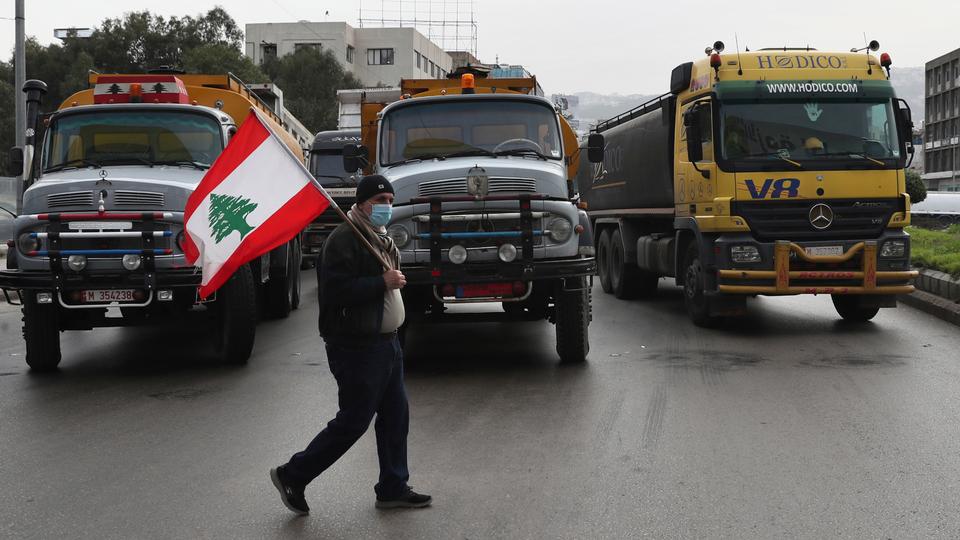Taxi and truck drivers blocked main highways and roads throughout the country in protest over worsening economic conditions.

A general strike by public transportation and labor unions has paralysed Lebanon as the country suffers one of the world's worst economic crises.
Thursday’s strike comes as the country’s ruling class has continued to do almost nothing to try and pull the country out of its meltdown rooted in decades of corruption and mismanagement.
Protesters closed the country’s major highways as well as roads inside cities and towns starting at 5AM local time. The nationwide protests, dubbed a “day of rage,” are scheduled to last 12 hours.
Taxi and truck drivers used their vehicles to block roads to protest a sharp increase in fuel prices as the government lifted subsidies. Their demand is to get subsidised fuel again.
Universities and schools were closed all over Lebanon and many people were not able to reach work because of road closures.
In the capital of Beirut, many roads were blocked by giant trash bins and vehicles.
‘Grave human rights violations’
The political class that has run the small nation of 6 million people, including 1 million Syrian refugees, since the 1975-90 civil war is resisting reforms demanded by the international community.
About 80 percent of people in Lebanon live in poverty after the Lebanese pound lost more than 90 percent of its value.
Lebanon’s economy shrank 20.3 in 2020 and about 7 percent last year, according to the World Bank.
Human Rights Watch said in its World Report 2022 released on Thursday that “the corrupt and incompetent Lebanese authorities have deliberately” plunged the country into one of the worst economic crises in modern times, demonstrating a disregard for the rights of the population.
It called for the international community to use “every tool at its disposal to pressure Lebanese policymakers to put in place the reforms necessary to pull Lebanon out of this crisis,” said Lebanon researcher at Human Rights Watch Aya Majzoub.
She added that they should include imposing sanctions against leaders responsible for the “ongoing grave human rights violations.”
Source: AP
Social media is bold.
Social media is young.
Social media raises questions.
Social media is not satisfied with an answer.
Social media looks at the big picture.
Social media is interested in every detail.
social media is curious.
Social media is free.
Social media is irreplaceable.
But never irrelevant.
Social media is you.
(With input from news agency language)
If you like this story, share it with a friend!
We are a non-profit organization. Help us financially to keep our journalism free from government and corporate pressure












0 Comments